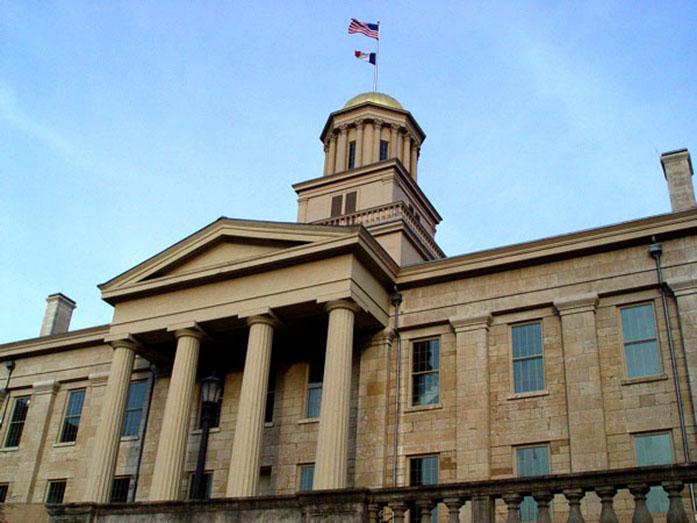By Mason Clarke
Issues with the state Board of Regents’ hiring process of Bruce Harreld as the University of Iowa president have landed the school on a national professor association’s sanctioned list.
“The University of Iowa is found to have carried out its presidential search in a way that failed to comply with AAUP policies on shared governance,” said UI Clinical Professor Lois Cox, a member of the American Association of University Professors.
The association, which oversees the hiring of higher-education administrators and faculty, imposed a sanction on the UI, according to a report released June 18. A sanction is a public notification that an institution did not abide by justifiable standards for hiring employees.
While the regents are the ones who appointed Harreld, they cannot be targeted by the sanction because the association may only place sanctions on educational institutions.
Iowa is now one of seven institutions in the country on the list of AAUP sanctions.
The association conducted an investigation into steps the regents took to hire Harreld last year, finding a number of issues with the process.
One problem the association found is what it called a political bias by the regents. According to state law, the regents are to have no more than five of the nine members be from the same political party.
According to the report, “In recent years, members of the board have been contributors to Iowa Gov. Terry Branstad’s election campaign … One or more of Gov. Branstad’s appointees to the board revised their party registration to ‘independent’ to conform to the political balance the law requires.”
The report goes on to say that the regents then failed to comply with the tradition of shared governance used to hire administrators. This resulted in the sanction.
“AAUP policy says that faculty should have the primary role in educational decisions and a significant role in selection of important administrative officers like the president,” Cox said.
In a press release, Regent President Pro Tem Katie Mulholland defended the regents’ decision to hire Harreld.
“We honor the shared governance of the university faculty,” she said. “But shared governance is really different from shared decision-making.”
A search committee of 21 people, with only seven faculty members, in theory assisted in finding the UI’s new president.
By the time Harreld was hired, the committee had disbanded and the regents “blatantly disobeyed” the wishes of UI faculty, according to the report.
The AAUP investigation found that Regent President Bruce Rastetter arranged a phone conversation between Harreld and Gov. Terry Branstad prior to the announcement that Harreld would become the next UI president.
The report states that the phone call also came after Harreld met with four of the regents in Ames.
According to the report, by selection time in September, Harreld was acquainted with a majority of the regents, while other candidates were not.
UI Faculty Senate President Christina Bohannan represented the UI faculty in a letter to the regents, leading up to the decision for the next UI president.
“Some members of the Faculty Senate would demand a vote of no confidence in the regents [if Bruce Harreld is chosen],” Bohannan said in the letter last fall.
Five days after Harreld was selected, the UI Faculty Senate voted “no confidence” in the regents.
Cox said the UI can get off the sanction list, but cooperation from the regents is required. They must display a willingness to improve their practices over the long-term for the AAUP to consider UI’s removal from the list.
In three months, the regents will select a new president for the University of Northern Iowa.



